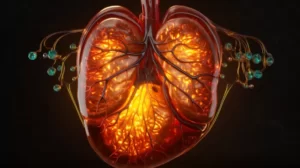Memorial Day might be a time for celebration, but before you reach for that beer or glass of wine, it’s worth considering the toll alcohol takes on your health. While alcoholic beverages may not taste sweet, they’re loaded with calories – a gram of alcohol has 7 calories, compared to almost 4 per gram of carbohydrates or protein, and 9 per gram of fat. A 12-ounce beer can contain between 100-200 calories, while a 6-ounce pina colada has approximately 380 calories. And that’s just the beginning.
The Hidden Health Hazards of Alcohol
Drinking alcohol has several adverse effects on your body:
- Reduced fat-burning capability: Drinking alcohol hampers your body’s ability to burn fat.
- Increased mindless eating: Alcohol lowers your blood sugar, providing empty calories with no nutritional value, which can lead to eating more without realizing it.
- Interrupted nutrient absorption: As your body cannot store alcohol, it attempts to eliminate it as soon as possible, interfering with nutrient absorption and fat-burning processes.
- Rapid impact on brain: Alcohol consumption on an empty stomach affects your brain within a minute due to the lack of digestion required, potentially resulting in unpredictable behavior.
- Dehydration: Alcohol triggers hormones that cause increased urination, fluid loss, and relative dehydration, which leads to increased thirst. Drinking more alcohol exacerbates this cycle.
- Loss of electrolytes: Standard levels of alcohol consumption result in urination and the loss of crucial electrolytes such as calcium, magnesium, potassium, and zinc.
- Decreased absorption of vitamins: Drinking excessively interferes with vitamin absorption and nutrient utilization, inhibiting the natural synthesis of needed proteins and negatively affecting immune and mental functions.
These factors can explain the common beer belly appearance in heavy beer drinkers or the dysfunctional health and personal lives of those who let alcohol control them.
Counteracting the Effects of Alcohol
Phosphatidylcholine is a little-known nutrient with several health benefits that can help repair liver damage caused by alcohol. This nutrient blasts away accumulated fat and cholesterol in the liver that can lead to inflammation and scarring. Furthermore, phosphatidylcholine helps heal nerves, improve muscle function, and boost energy levels. Foods rich in this nutrient include eggs, beef liver, soybeans, and nuts. For optimal benefits, a daily dose of around 500 mg is recommended.
But what about the benefits of drinking wine? Moderate wine consumption has long been associated with cardiovascular health benefits. Scientific research reveals that both wine and alcohol alone can reduce heart attack risks, with individual mechanisms for cardio protection. Alcohol raises HDL cholesterol and lowers fibrinogen and platelets. On the other hand, the polyphenolic antioxidants in wine facilitate blood vessel relaxation, reduce inflammation, and decrease clotting, among other beneficial effects.
You must keep your alcohol intake below one drink per day for women and one or two for men. Staying within these limits will help minimize heart disease risk. However, you can consume phytonutrients, superfoods, and natural antioxidants all day long, and you’ll only get healthier. Dealcoholized red wine has also been proven to be cardioprotective as well as grape juice and grape seed proanthocyanidin.
The bottom line: there are alternatives to alcohol that provide even more significant health benefits, so think twice before indulging in that drink this Memorial Day.



![8 Simple Rules to Refresh Your Body with a Healthy Cleanse [See Pictures]](https://naturalhealthreserve.com/wp-content/uploads/2024/01/8-rules-healthy-cleanse-slideshow-300x168.webp)